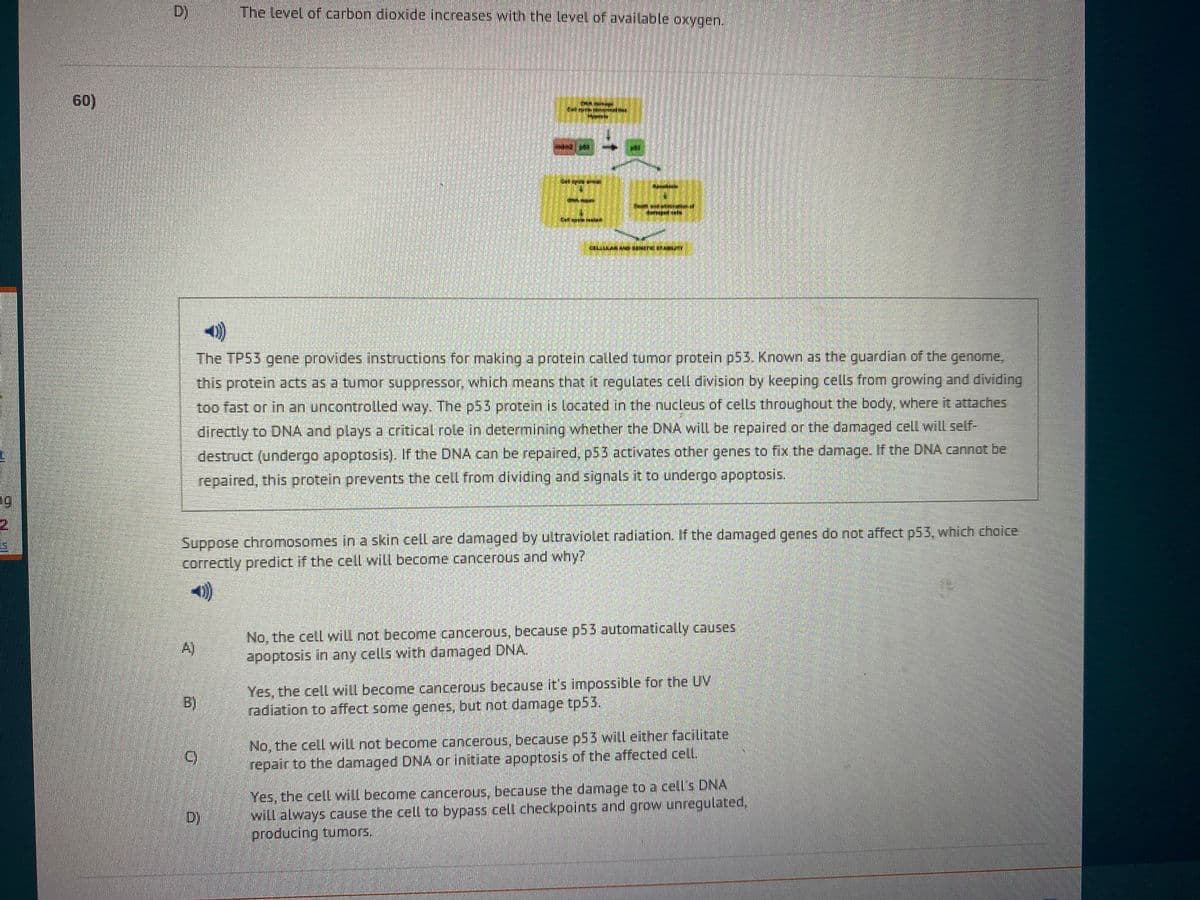The TP53 gene provides instructions for making a protein called tumor protein p53. Known as the guardian of the genome, this protein acts as a tumor suppressor, which means that it regulates cell division by keeping cells from growing and dividing too fast or in an uncontrolled way. The p53 protein is located in the nucleus of cells throughout the body, where it attaches directly to DNA and plays a critical role in determining whether the DNA will be repaired or the damaged cell will self- destruct (undergo apoptosis). If the DNA can be repaired, p53 activates other genes to fix the damage. If the DNA cannot be repaired, this protein prevents the cell from dividing and signals it to undergo apoptosis. Suppose chromosomes in a skin cell are damaged by ultraviolet radiation. If the damaged genes do not affect p53, which choice correctly predict if the cell will become cancerous and why? No, the cell will not become cancerous, because p53 automatically causes apoptosis in any cells with damaged DNA. A) Yes, the cell will become cancerous because it's impossible for the UV radiation to affect some genes, but not damage tp53. B) No, the cell will not become cancerous, because p53 will either facilitate repair to the damaged DNA or initiate apoptosis of the affected cell. Yes, the cell will become cancerous, because the damage to a cell's DNA will always cause the cell to bypass cell checkpoints and grow unregulated, producing tumors. D)
Gene Interactions
When the expression of a single trait is influenced by two or more different non-allelic genes, it is termed as genetic interaction. According to Mendel's law of inheritance, each gene functions in its own way and does not depend on the function of another gene, i.e., a single gene controls each of seven characteristics considered, but the complex contribution of many different genes determine many traits of an organism.
Gene Expression
Gene expression is a process by which the instructions present in deoxyribonucleic acid (DNA) are converted into useful molecules such as proteins, and functional messenger ribonucleic (mRNA) molecules in the case of non-protein-coding genes.

Trending now
This is a popular solution!
Step by step
Solved in 2 steps


